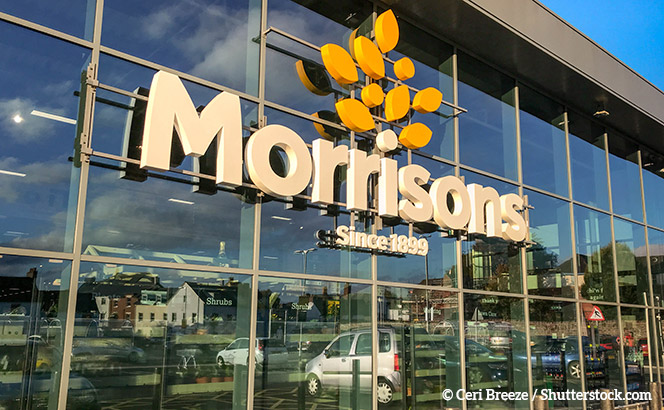‘This level of scrutiny of governance is quite unusual. Historically in deals of this kind, no-one ever used to ask: “What’s going to happen to the workers?” It is becoming more and more of an issue as companies seek to avoid reputational damage.’
The words of Paul Watchman, ESG luminary, senior UN legal adviser and former Freshfields Bruckhaus Deringer partner on the proposed £6.3bn takeover of UK supermarket giant Morrisons resonate as the deal looks set not only to become one of the biggest public to private transactions of the decade, but also to enshrine a playbook for ESG in years to come.
At a time when there is little in the way of market-defining, marquee M&A, dealmakers have observed the offer from private equity house Fortress Investment Group, together with co-investors Canada Pension Plan Investment Board (CPPIB) and Koch Real Estate Investments (KREI) with much excitement – the latest twist in the tale of a good old-fashioned takeover.
However, as the bidding war unfurls, it has become clear that this is far from an old-school M&A proposition.
The saga started heating up in early May when Fortress approached the board with an unsolicited offer of 220p in cash per share, a proposal that was rejected because it ‘was not at a level the Morrisons directors felt reflected an appropriate valuation for Morrisons and its future prospects’, according to the supermarket’s announcement document.
Fortress then made four subsequent proposals before its offer reached a total value of 254p per share in early June. Threatening to stymie that bid, a bump in the road came in the middle of June when Clayton, Dubilier & Rice (CD&R) made an offer of 230p. Then in early July, fellow private equity player Apollo confirmed it was in the preliminary stages of evaluating a possible offer for Morrisons. The race continues as CD&R and Apollo, if they choose to bid, have until seven days before Fortress’ shareholder meetings to do so.
Exhilarating times, not to say nerve-racking, for the practitioners involved, with Fortress’ Oppidum Bidco turning to longstanding adviser Slaughter and May and a team fronted by corporate partners Roland Turnill, Richard Smith and Harry Bacon. On the sell-side, Ashurst goes way back with Morrisons, having advised on the acquisition of Safeway in 2004 and on the launch of its online delivery partnership with Ocado in 2013, rallying a team led by M&A grandee Tom Mercer and fellow corporate partner James Fletcher, competition partner Nigel Parr and strategic advisory partner and co-head of Ashurst’s London office Lynn Dunne.
For the co-investors, Mark Stamp at Milbank is advising CPPIB while Jones Day partners Julian Runnicles and Leon Ferera are acting for Koch.
Slaughters’ Bacon is bullish on the mandate: ‘This deal marks a step-change in the size of deals we’ve done for Fortress. This is a great way of dispelling any myth that Slaughters doesn’t do private equity. We do it for great clients at the highest level.’
And, in case anyone who has been following the ESG revolution has been left in any doubt, the deal also dismisses the idea that such considerations are just a nice-to-have for boards and advisers alike. The announcement document details a ‘very significant emphasis on the wider responsibilities of ownership of Morrisons’, epitomised by long-term ownership (Fortress points to its respectable track-record owning such companies as Majestic Wine), looking after employees, respecting relationships with suppliers, managing real estate responsibly, sustainability and food security. In short, this is a far cry from private equity’s ‘greed is good’ reputation of yore and is given further credibility through the choice of steady, long-termist co-investors.
Notes Watchman: ‘The supply chain of Morrisons is really interesting – it has its own bakery and a fishing boat – there is a local northern chain aspect and they have a good relationship with their farmers. The company will reassure the supply chain that those relationships will be maintained. This is all part of the governance aspect of ESG.’
And, amid heightened appraisals of whether the family silver is being sold or not – Legal & General Investment Management earlier this month warned that potential buyers should not buy Morrisons to take advantage of a possibly undervalued property portfolio, to load it up with debt, or to cut its tax bill – advisers have got their work cut out when it comes to proving virtue to the market. It is no longer about flogging to the highest bidder.
Concludes Bacon: ‘We are increasingly navigating headwinds in public-to-private transactions. There has been discontentment among institutional investors that public companies are being sold to private companies (and particularly private equity) too cheaply. Acting on the buy-side, we are well placed to make sure this is properly managed and that the bumps in the road are pre-empted. It is critical to consider the terms of the deal in the round, not just the price. Increasingly, buyers will have to show that they will look after the business – not only that the price is right. For shareholders, price and value remain the number one considerations, but increasing focus on ESG issues is prompting a more holistic approach to shareholders’ assessment of deals.’
With the legal industry desperately to move away from accusations of greenwashing, here is a deal where ESG is proving a true business imperative, and one that could blaze a trail for years to come.











